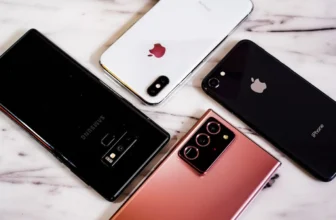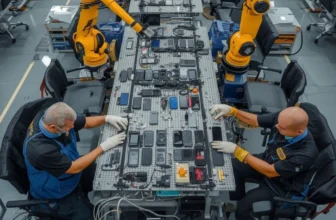
In today’s hyper-connected world, mobile technology has transformed from a luxury to a necessity, permeating every aspect of daily life. From communication and commerce to healthcare and education, the ripple effects of mobile innovation are reshaping societal norms, economic structures, and personal habits at an unprecedented pace. We live in a world where mobile phones, tablets, wearable tech, and smart devices define how we live, work, and interact.
Mobile Communication: Redefining Human Connection
Instant communication is the cornerstone of mobile technology. With applications such as WhatsApp, Signal, Telegram, and FaceTime, we are now capable of reaching anyone, anywhere in the world, in seconds. This real-time connectivity enhances both personal and professional relationships, facilitating seamless interaction across geographic boundaries.
Moreover, the rise of video conferencing and collaboration tools like Zoom, Microsoft Teams, and Google Meet has redefined workplace dynamics, enabling remote work and global collaboration. These tools are vital in promoting flexible work environments and increasing productivity.
Read More: How to Use Face Unlock Securely
Smartphones as Digital Wallets and Banking Hubs
The mobile financial revolution has led to the widespread adoption of mobile banking and digital payment platforms. With services like Apple Pay, Google Pay, PayPal, Venmo, and Cash App, users can complete transactions, transfer money, and even invest—all from the palm of their hand.
Banks now offer robust mobile apps, providing services such as:
- Remote check deposits
- Real-time account monitoring
- Peer-to-peer transfers
- Investment tracking
- Credit monitoring tools
In developing regions, mobile money services such as M-Pesa have become critical in driving financial inclusion, allowing unbanked populations to access essential financial services securely.
E-Commerce and Mobile Shopping Trends
Mobile technology has fueled the e-commerce explosion. With apps like Amazon, eBay, Shopify, and Etsy, consumers enjoy personalized shopping experiences, product recommendations, and one-click checkouts.
Key trends reshaping mobile shopping include:
- Augmented Reality (AR): Shoppers can now try products virtually before purchasing.
- Voice Search: With AI assistants like Siri and Google Assistant, users can shop using voice commands.
- Social Commerce: Platforms such as Instagram and TikTok are enabling direct purchases through in-app shopping features.
Retailers who prioritize mobile-first design and responsive platforms are dominating consumer markets, as mobile devices now account for over 60% of global e-commerce traffic.
Mobile Tech in Healthcare: The mHealth Revolution
Mobile technology’s role in healthcare, or mHealth, is dramatically improving patient outcomes. From telemedicine to health tracking apps, mobile tech empowers both providers and patients.
Popular innovations include:
- Wearable Devices: Smartwatches and fitness bands monitor heart rate, sleep patterns, and physical activity.
- Remote Patient Monitoring: Patients with chronic conditions can be monitored in real time.
- Mobile Health Apps: Apps like MyFitnessPal and Medisafe help track diet, exercise, and medication adherence.
- Telehealth Services: Platforms like Teladoc and Amwell offer remote consultations, saving time and reducing the burden on healthcare systems.
This evolution is particularly beneficial in rural and underserved areas, where access to traditional healthcare may be limited.
Education on the Go: Mobile Learning Platforms
The education sector has undergone a seismic shift due to mobile technology. E-learning and mobile learning apps make knowledge accessible 24/7 from virtually any location. Leading platforms such as Khan Academy, Coursera, Duolingo, and Udemy provide high-quality learning content for free or at low cost.
Key advantages include:
- Self-paced learning modules
- Gamification of education
- Interactive multimedia tools
- Real-time assessments and feedback
Mobile learning ensures lifelong learning is not just a concept, but a practical, achievable reality for individuals of all ages.
Navigation and Location Services: Changing How We Move
With the power of GPS and real-time location services, mobile technology has revolutionized transportation and logistics. Apps like Google Maps, Waze, Uber, and Lyft have made navigation simpler and more accurate.
Benefits include:
- Efficient route planning
- Live traffic updates
- Ride-hailing and carpooling services
- Fleet management and logistics tracking
Additionally, these services are integrated into smart cities to optimize public transport, reduce congestion, and improve urban planning.
Entertainment On Demand: The Rise of Mobile Media Consumption
Mobile tech has dramatically shifted the entertainment landscape. Streaming services such as Netflix, YouTube, Spotify, and TikTok dominate how content is consumed.
The entertainment experience is now:
- On-demand and personalized
- Accessible on-the-go
- Enhanced with AR/VR integration
- Optimized with AI-powered recommendations
Mobile gaming is another booming sector, with titles like PUBG Mobile, Fortnite, and Candy Crush generating billions in revenue. This shift has encouraged cross-platform game development, fostering community and interactivity.
Work and Productivity Tools: Efficiency in Your Pocket
With a mobile device, entire workflows can be managed remotely. Apps like Slack, Trello, Notion, Asana, and Evernote enable real-time collaboration and task management.
Features enhancing productivity:
- Cloud storage and file sharing (Google Drive, Dropbox)
- Email and calendar integration
- Automated reminders and to-do lists
- Mobile document editing
Businesses are increasingly adopting Bring Your Own Device (BYOD) policies, leveraging mobile technology to foster agile, responsive teams.
Smart Homes and IoT: The Connected Lifestyle
Internet of Things (IoT), powered by mobile tech, is turning homes into smart ecosystems. With a smartphone, users can now control:
- Thermostats (Nest, Ecobee)
- Lighting systems (Philips Hue, LIFX)
- Home security (Ring, Arlo, SimpliSafe)
- Appliances (smart ovens, refrigerators, and more)
Mobile apps serve as unified control centers, allowing remote access, automation, and energy optimization. This transformation is fostering sustainable living and improving convenience.
Privacy and Security Challenges
While mobile technology brings undeniable benefits, it also raises critical privacy and cybersecurity concerns. The increasing reliance on mobile platforms makes users vulnerable to:
- Phishing attacks
- Malware and spyware
- Data breaches
- Unauthorized tracking
To combat these risks, users must adopt best practices such as:
- Using VPNs
- Enabling two-factor authentication
- Installing trusted antivirus software
- Regularly updating apps and OS
Governments and companies must also prioritize data regulation and ethical AI use to ensure the safe evolution of mobile technologies.
Checkout: Best Times of the Year to Buy a Phone
Conclusion
The impact of mobile technology on everyday life is both profound and permanent. It has streamlined communication, empowered individuals with knowledge, transformed industries, and enhanced quality of life. As mobile tech continues to evolve, its integration into our personal, social, and professional spheres will only deepen, driving innovation and connectivity across the globe.
Frequently Ask Questions (FAQ’s)
Mobile technology has revolutionized communication by enabling instant messaging, video calls, and social media interactions, allowing people to connect globally in real time.
Mobile technology supports healthcare through wearable devices, health-tracking apps, telemedicine, and remote monitoring, improving patient care and access to medical services.
Mobile tech makes education more accessible through learning apps, online courses, and digital classrooms, offering flexible, self-paced learning for students everywhere.
Mobile devices allow users to browse, compare, and purchase products online, driving the growth of e-commerce and enabling a more convenient, personalized shopping experience.
Mobile technology can greatly enhance productivity by offering tools for task management, remote collaboration, and time tracking—though distractions from apps can be a downside if unmanaged.





